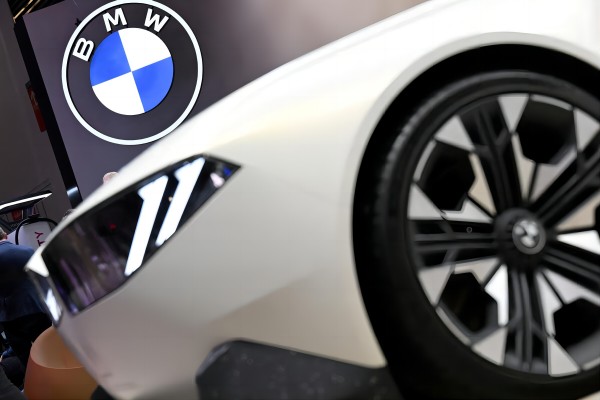
A BMW Vision Neue Klasse is displayed next to the company's logo during an event a day ahead of the official opening of the 2023 Munich Auto Show IAA Mobility, in Munich, Germany, Sept 4, 2023. [Photo/Agencies]
BMW is confident of China's economic prospects and will scale up its investment in the country, said Oliver Zipse, board chairman of the German carmaker.
Zipse, who made the remark in a statement released on the night of April 13, is visiting China as a member of the business delegation led by German Chancellor Olaf Scholz.
Scholz arrived in Chongqing on April 14, starting his three-day official visit to China.
For 30 years, BMW has been deeply rooted in China, benefiting from free trade and China's opening-up policy, Zipse said.
Currently, China is BMW's largest market worldwide. Last year, the German carmaker sold more than 820,000 vehicles in the country, accounting for roughly one-third of its global deliveries, according to data released by BMW earlier this year.
Zipse said the company's successful development in China is closely intertwined with the country's economic progress and social development over the past three decades.
China is now home to BMW's largest research and development network outside Germany. Its production base in Shenyang, Liaoning province, is one of its largest and most advanced manufacturing hubs across the globe.
The carmaker is introducing its new products in China, and will start production of its latest Neue Klasse vehicles at the Shenyang base from 2026.
Zipse said the models, which will come out in 2025, are "not a new chapter in the history of mobility", but instead "a whole new book".
BMW has invested 10 billion yuan ($1.38 billion) on a battery project in Shenyang for its Neue Klasse vehicles. Statistics show that the accumulative investment in the Shenyang base has exceeded 100 billion yuan since 2010.
"China is the place to be. Our continued success in the world's largest automotive market can only go hand in hand with the continuous growth and development of our local footprint in the country," Zipse said.
Last week, German multinational Volkswagen AG also announced that it will invest 2.5 billion euros ($2.66 billion) in China. The investment will be spent on expanding its production and innovation hub in Hefei, Anhui province.
Maximilian Butek, East China executive director of the German Chamber of Commerce in China, said that China presents significant prospects for advancement in areas such as electric vehicle batteries and autonomous driving. This growth potential is driving German companies to intensify their market presence in the country, he said.
Shi Shiwei, a professor of German studies at the University of International Business and Economics in Beijing, said that China's shift from focusing on the scale and speed of foreign investment to prioritizing quality has resulted in a surge of German investment in the high-tech manufacturing sector.
China's visa-free policy for several European countries, including Germany and France, will also lead to increased business activities between the two sides in the next phase, Shi said.
Attracted by China's efficient supply chains and growing innovation prowess, German investment in China grew 19.8 percent year-on-year in the first two months of the year. It accounts for 30 percent of the European Union's investment in China, according to the Ministry of Commerce.
More than 5,000 German companies are operating in China, which has been Germany's largest trading partner for many years, Xinhua reported.